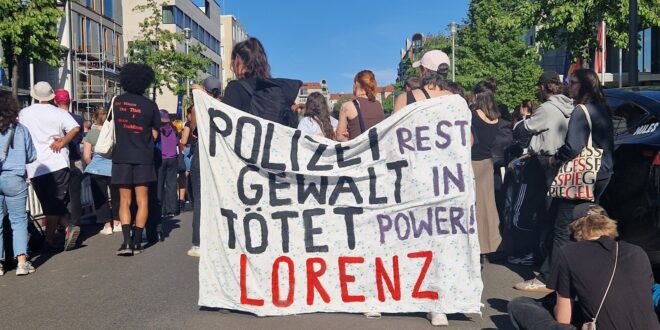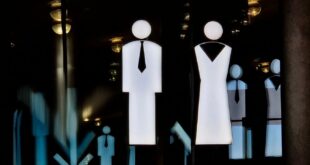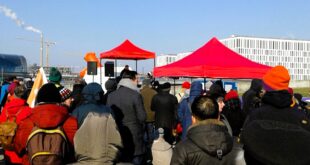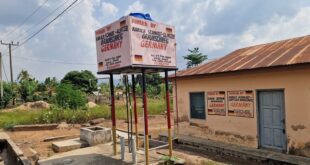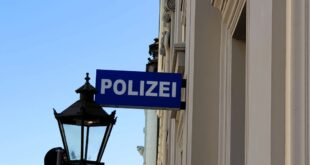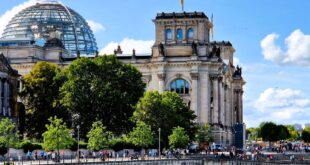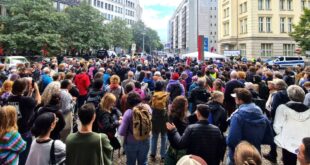More than 100 demonstrators gathered on Wednesday, 30 April, outside the Representation Office of the state of Lower Saxony in Berlin. They were there to protest the fatal police shooting of 21-year-old Afro-German Lorenz A. in Oldenburg in the early hours of Easter Sunday. The protest, part of a nationwide wave of actions, was organized by Black community groups who say the incident reflects a longstanding pattern of racist police violence in Germany.

According to reports, Lorenz A. was denied entry to a nightclub in Oldenburg. Following a dispute during which he allegedly used pepper spray, he fled. Police somehow became involved, and he was shot multiple times —three times in the back, according to an official autopsy. Claims that Lorenz was armed with a knife were swiftly challenged and later disproved by the state public prosecutor, who confirmed he had no weapon on him. The police officer involved has since been suspended, and a homicide investigation is underway.
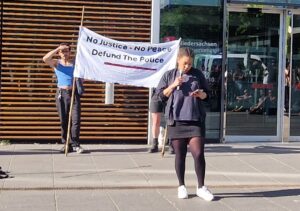
Speakers at the Berlin protest condemned the attempt to criminalise Lorenz posthumously, calling it a familiar tactic used to justify excessive police violence against Black people. “It’s more important than ever to resist racist police violence,” said one speaker. “Lorenz’s death is not an isolated case — it reflects a dangerous system.”
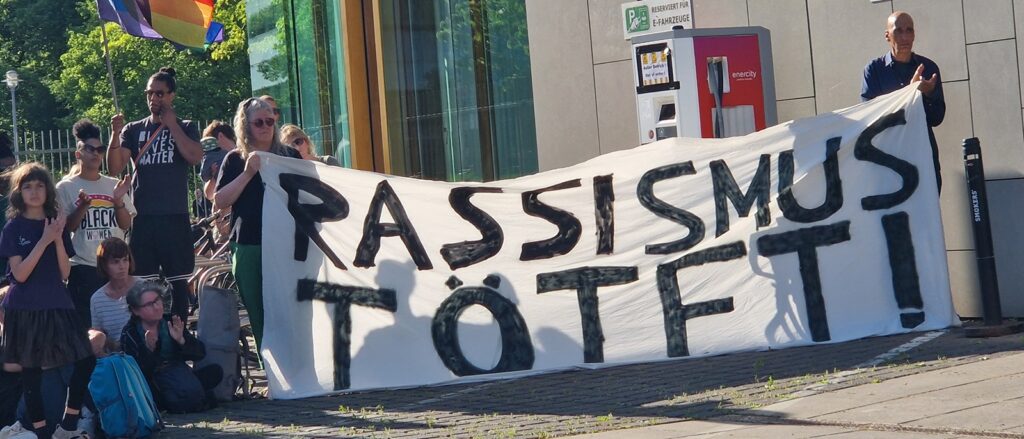
Vanessa Thompson of the Initiative Schwarze Menschen in Deutschland (ISD) led a moving remembrance of other Black people who have died in police encounters in Germany over the past two decades. Names such as Oury Jalloh (who died under suspicious circumstances in police custody in Dessau in 2005), Achidi John, Okechukwu John Okafor, Lamin Touray, Marianne Sarr, Mohamed Lamin Dramé etc were read aloud — each name met with a powerful chorus of “Kein Einzelfall!” (“Not an isolated case!”) from the crowd.
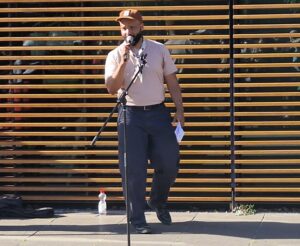
Thompson described how systemic racism and police profiling have disproportionately criminalised people of African descent. “The police have been used to criminalise poverty and migration,” she stated, while also calling for solidarity with broader struggles for justice, including the climate movement and support for Gaza.
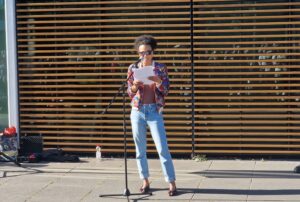
Marianne Balle, board member of the Central Council of the African Community in Germany, called for unity among Black communities across the country. “Wherever a Black person is unjustly treated, we must rise in protest everywhere in the country,” she said. “Touch one, touch all!” Balle also warned of the growing popularity of right-wing extremism in Germany and urged vigilance and resistance.
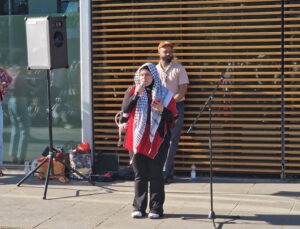
The demonstrators demanded an independent panel be appointed by the government of Lower Saxony to investigate Lorenz’s killing, stressing that existing mechanisms lack credibility. The fact that Lorenz was shot in the back, they noted, undermines any suggestion that he posed an immediate threat to officers.
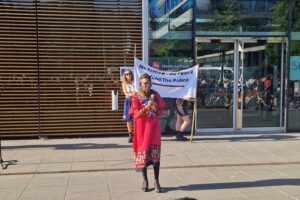
The Berlin protest follows demonstrations in cities including Oldenburg, Munich, Frankfurt, Stuttgart and Vienna. Rights organisations such as Amnesty International and the ISD have renewed calls for structural reforms and the creation of independent bodies to oversee police conduct.
As calls for justice grow louder, the case of Lorenz A. has become a rallying point for anti-racist activism in Germany. For many, justice for Lorenz is not just about accountability in a single case — it is about affirming the humanity and rights of all people of African descent in the country.
Femi Awoniyi
 THE AFRICAN COURIER. Reporting Africa and its Diaspora! The African Courier is an international magazine published in Germany to report on Africa and the Diaspora African experience. The first issue of the bimonthly magazine appeared on the newsstands on 15 February 1998. The African Courier is a communication forum for European-African political, economic and cultural exchanges, and a voice for Africa in Europe.
THE AFRICAN COURIER. Reporting Africa and its Diaspora! The African Courier is an international magazine published in Germany to report on Africa and the Diaspora African experience. The first issue of the bimonthly magazine appeared on the newsstands on 15 February 1998. The African Courier is a communication forum for European-African political, economic and cultural exchanges, and a voice for Africa in Europe.

